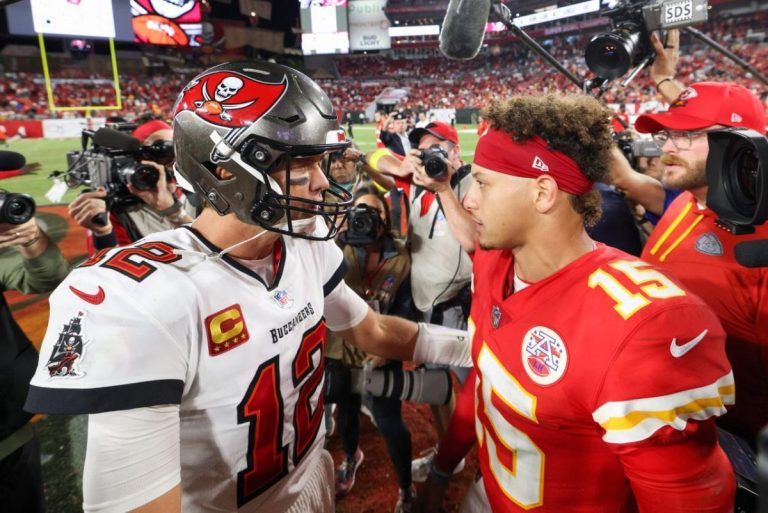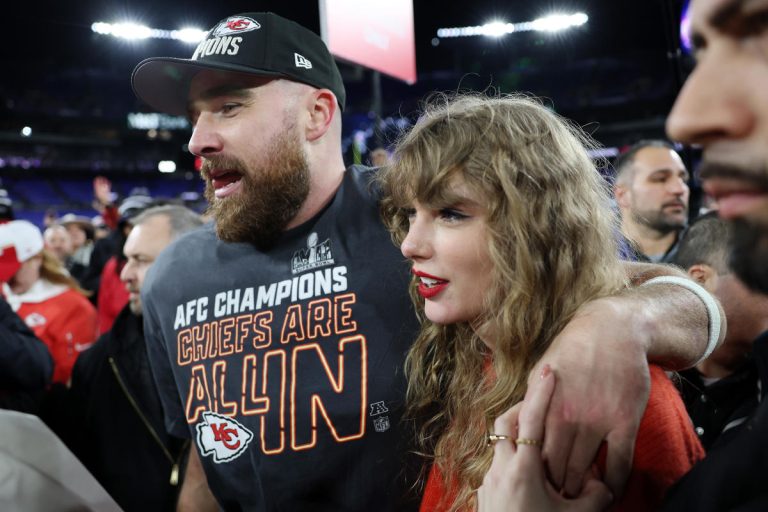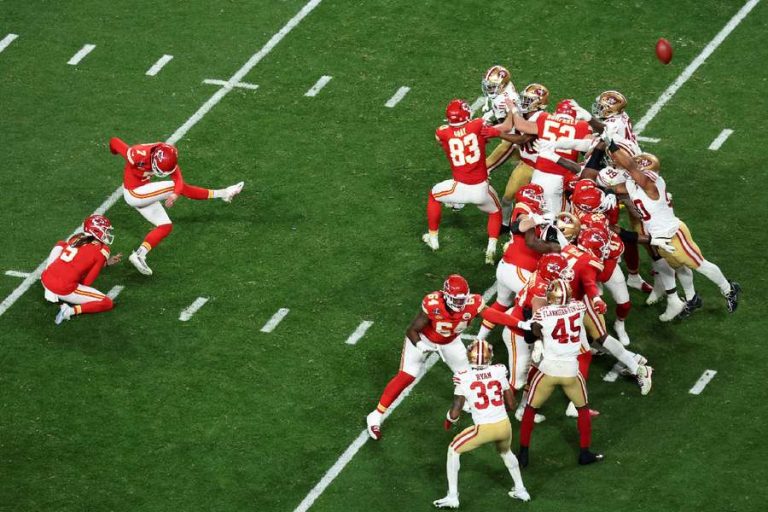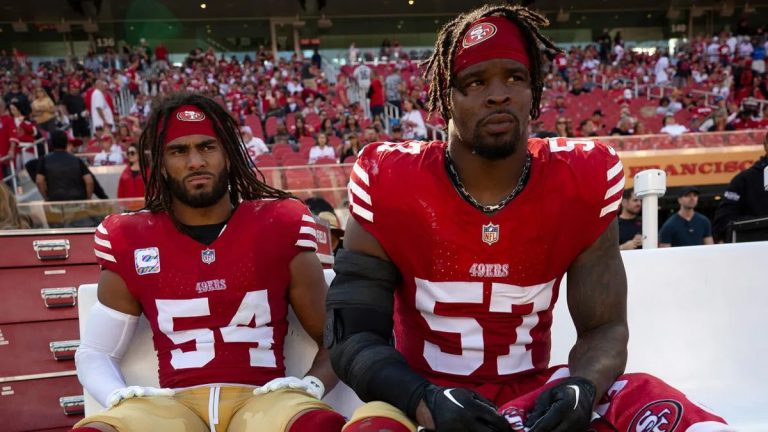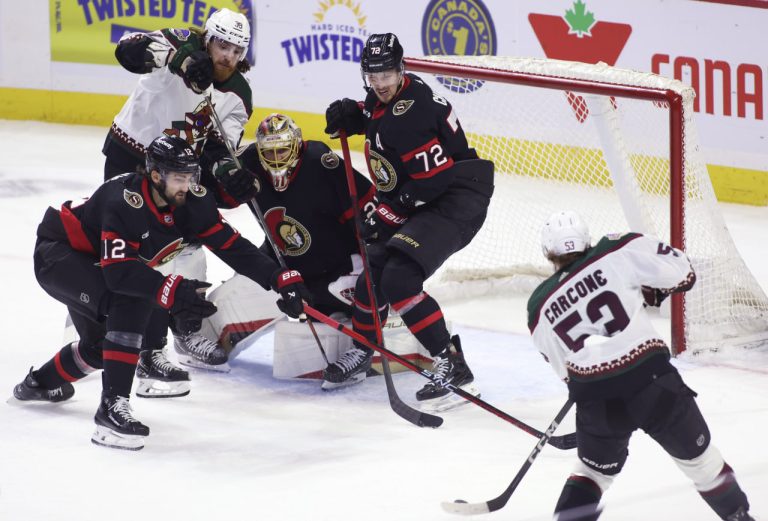Super Bowl week has become overly popular
LAS VEGAS — In a recent incident at the Super Bowl media event, San Francisco quarterback Brock Purdy was confronted with a bizarre question by a reporter. The question, regarding alleged resemblances between Purdy and Lee Harvey Oswald, caught the quarterback off guard and left him visibly perplexed. Purdy’s reaction, a mix of confusion and composure, reflected the absurdity of the situation.
When asked about the supposed resemblance and circulating photos, Purdy admitted that it was the first time he had heard such a comparison. His response was hesitant, indicating his disbelief and uncertainty about how to react to such an unexpected inquiry.
The exchange quickly gained attention online, with video clips spreading rapidly across social media platforms. The oddity of the question and Purdy’s reaction made it prime material for internet virality. Media outlets seized upon the incident, further amplifying its reach and generating additional discussion.
It appeared that the reporter’s intent was solely to generate engagement by using Purdy as a pawn in a sensationalist spectacle. By luring him into a false sense of security with what seemed like a reasonable question, the reporter then blindsided him with a ludicrous comparison, aiming to provoke an uncomfortable reaction. The calculated move was designed to garner attention and capitalize on the ensuing social media frenzy.
The entire exchange underscored the pitfalls of sensationalist journalism and the pursuit of viral content at the expense of integrity and respect. Using a public figure like Purdy to fuel online engagement without regard for his feelings or dignity reflects a troubling trend in modern media. However, in an age where clicks and views reign supreme, such tactics unfortunately prove effective in achieving short-term attention and notoriety.
There’s a prevailing sentiment that highly-paid football players and coaches don’t elicit much sympathy from the public. While nobody is suggesting that coverage of the Super Bowl shouldn’t be entertaining, there’s a growing consensus that the event has shifted from genuine interactions to a spectacle of gimmicks and stunts.
Super Bowl media day has morphed into a stage for outlandish antics, with reporters vying for attention by resorting to wild and often unfair questions. While players and coaches may enjoy discussing their interests and personalities, they increasingly find themselves subjected to absurd inquiries designed solely for the sake of generating viral content.
The line between promotion and exploitation becomes blurred as individuals are treated as mere subjects of spectacle rather than respected professionals. It’s as if they’ve become circus animals, expected to perform on cue for the amusement of the audience.
Latest American Football League Scores & Updates.
While some may argue that this is simply part of their job – promoting the Super Bowl – the reality is that they often feel like the butt of the joke rather than active participants in the process.
For instance, consider the absurdity of asking someone if they resemble a notorious assassin. Such questions serve no legitimate purpose other than to provoke a reaction for the sake of social media engagement.
In essence, the Super Bowl media circus has lost sight of its original intent, becoming more about shock value and entertainment than meaningful dialogue. As a result, players and coaches find themselves navigating a landscape where their dignity and professionalism are often sacrificed for the sake of fleeting internet fame.
Ultimately, while it’s important to inject some levity and fun into Super Bowl coverage, it’s equally crucial to ensure that individuals are treated with respect and dignity. The pursuit of viral content should never come at the expense of basic human decency.
During another media conference, Kansas City coach Andy Reid found himself confronted with an absurd question about a conspiracy theory involving Travis Kelce and Taylor Swift supposedly aiming to influence the reelection of President Biden. Reid’s confusion was palpable, as the nonsensical nature of the conspiracy was apparent. Yet, instead of dismissing it outright, Reid chose to respond with a diplomatic smile, acknowledging the absurdity of the question while tactfully steering the conversation toward Taylor Swift’s positive attributes.
This incident was emblematic of the bizarre and often uncomfortable questions that players and coaches face during Super Bowl media events. Patrick Mahomes was probed about his father’s DWI arrest, while Brock Purdy was compared to a female high school tennis star from Utah, sparking an unexpected conversation about their resemblance. The focus on Purdy’s lookalike and Kelce’s relationship with Swift highlights the strange intersection between celebrity culture and sports.
Kelce, in particular, bore the brunt of inquiries about his relationship with Swift, a testament to the scrutiny that comes with dating a high-profile figure. Despite the invasive nature of some questions, Kelce remained composed and gracious, skillfully deflecting inquiries about marriage proposals and future plans.
Yet, behind the veneer of lighthearted banter lies a troubling trend: the increasing sensationalism and rudeness of media interactions during Super Bowl week. Reporters, emboldened by the quest for viral content, often resort to disrespectful and outlandish questions, placing athletes in uncomfortable positions.
In today’s social media-driven landscape, where outrageousness is celebrated, players and coaches are subjected to a barrage of humiliating inquiries, all in the name of generating attention. This trend reflects a broader societal shift toward prioritizing entertainment over empathy, where athletes preparing for the pinnacle of their careers are treated as fodder for sensational headlines.
As Super Bowl media events become increasingly spectacle-driven, it’s essential to remember the human beings behind the helmets and jerseys. Athletes deserve respect and consideration, especially as they navigate the pressures of competing on the world’s biggest stage. The line between entertainment and exploitation must be carefully drawn to ensure that athletes are not unfairly subjected to public scrutiny and ridicule during what should be a momentous and celebratory occasion.


